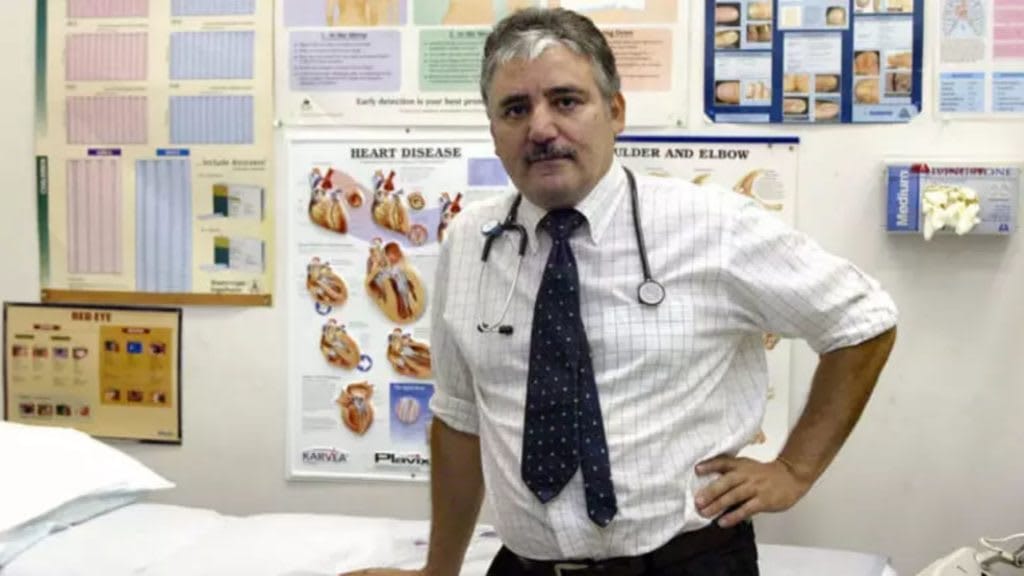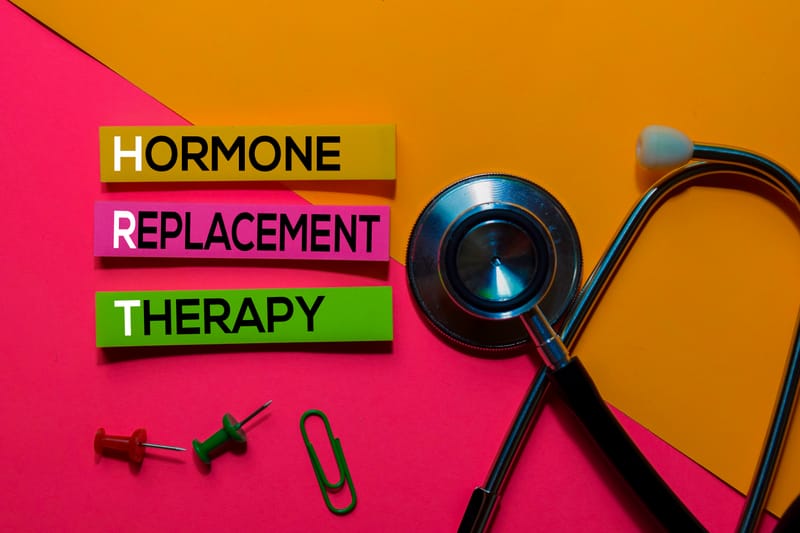'Running on Speed': Quality of care concerns over rushed bulk-billing GPs
Concerns the Medicare cash-for-patients model could be causing GPs to rush through patient consultations, exposing the sick to misdiagnosis.

BY LEE ROBINSON
Suffering from red marks and intense itching all over his body, 24-year-old Jasper* visited the same bulk-billing GP clinic three times in the space of eight weeks. Each visit lasted less than five minutes before the doctor dismissed him without a correct diagnosis.
On his first visit, Jasper was told the cause of his symptoms was likely to be allergies and was recommended an antihistamine. When Jasper returned three weeks later, he was sent off to get a blood test. Nothing irregular showed up.
On his final visit, about a month later, his symptoms had worsened. Once again, Jasper’s doctor told him it was likely allergies, but wrote a referral for a skin specialist in case the skin condition did not improve.
Before forking out a couple hundred dollars to see the specialist, Jasper decided to try a private GP clinic, one offering longer appointment slots with patients.
This time, when Jasper arrived, the doctor asked a few questions, then pulled out a microscope and spent 10 minutes taking a closer look at Jasper’s skin, where he discovered small mites.
Jasper was diagnosed with scabies and promptly treated.

With debate about whether the Medicare rebate is a fair reflection of the cost of delivering medical care, the bulk-billing rate rose to an all-time high this year, with 86.2 per cent of GP services fully subsidised by Medicare, according to the Department of Health.
Medical experts say many GP visits are so rushed patients are not receiving adequate care.
Vice president of the Doctors Reform Society (DRS), Dr Con Costa, said the Medicare system was causing serious problems for patients and leading doctors to spend less time with patients than they need.
“The whole system at the moment is running on speed. It’s like all the doctors are on ice, they’re hyperactive, and they just want to get the patients in and get them out,” he said.
“If GPs don’t spend enough time, it doesn’t matter how clever they are, they’re not going to make the right diagnosis, and they’re going to make a mistake.”

Medicare’s fee-for-service system provides a fee per every visit, effectively incentivising higher turnaround in consultations. Fee brackets are 20 minutes, so treating a patient in five minutes can earn a GP triple that of a GP who takes 15 minutes.
In September, the Department of Health released its Annual Medicare Statistics report, which found in 2018-19 patients accessed 158.3 million GP services, at a cost of $8.1 billion in Medicare benefits. This compares to 154.7 million services in 2017-18 at a cost of $7.8 billion in Medicare benefits.
This is an increase of 2.0 per cent in service volumes and an increase in benefit of 2.8 per cent compared to 2017-18.
Australia's population grew by 1.6% during 12-months ending March 31, 2019 and by the same rate in the year prior, suggesting the growth in Medicare benefits was greater than the population growth of the nation.
Medicare is funded by taxpayers, with partial funding from an income tax surcharge for taxpayers earning over a certain threshold, the Medicare levy. The levy is currently 1.5 per cent of contributors’ taxable income or 2.5 per cent for those on high incomes who don’t have private health insurance.
Despite an annual CPI increase of about two per cent between 2014-2017, the Australian Government put a freeze on the Medicare rebate, holding the amount collected by bulk-billing GPs stationary. While the rebate has been gradually unfrozen in the two years that have followed, it has not kept up with CPI increases.
The most common category of consultation billed to Medicare is an “Item 23”, which applies to most attendances lasting less than 20 minutes. This type of consult can include taking patient history, performing an examination, arranging investigation, implementing a management plan or providing appropriate medical health care.
Currently, it offers a benefit of $38.20 to a bulk-billing GP, but for a GP contracted to a corporate clinic, they likely carry away only 60-70 per cent of this—closer to $25, according to Dr Costa.
“It’s not a workable formula for GPs who want to be high-middle-class earners. They’ve got private school fees to pay, they’ve got to pay off their cars, and other stuff like this,” he said.
“The first people to lose in this formula are the patients.”
Dr Gary Braude is the owner and CEO of MyClinic Group, a chain of 16 bulk-billing GP clinics across Melbourne. A consulting GP for 30 years, Dr Braude dismissed the claim that doctors are rushing patients to boost their income and said he doesn’t see it across his clinics.
“It’s complete nonsense. A doctor will spend as much time with the patient as the doctor feels is required,” he said.
“It doesn’t matter whether it’s a bulk-billing doctor or a private-billing doctor. It depends on the patient and it depends on the problem. If a patient needs care, the patient will be given care.”

Managing 100 doctors across his clinics, Dr Braude said the Medicare system for rebates was well-functioning and allowed GPs do their job adequately.
“It’s a very generous, honest, good [rebate] system. If GPs are prepared to work, they’ll make money,” he said.
“With AHPRA (the Australian Health Practitioner Regulation Agency) and Medicare overlooking doctors, I haven’t seen patients being rushed through in a very long time.”
Dr Braude also pointed out that bulk-billing clinics, by virtue of being free for patients, can attract patients with more trivial problems who would not be willing to go to a privately-billing GP with the same problems. These patients can often be seen quicker, Dr Braude said.
The Department of Health and AHPRA play a role in ensuring GPs and medical clinics comply with the requirements of the Medicare Benefits Schedule (MBS) and other Medicare programs through using data analytics and assessing tip-offs, among other methods.
While there are many iterations of GP clinic business models, two popular types prevail. The first is the traditional or “cottage industry” model, which is usually made up of a small group of doctors, and often one or more of these doctors own the clinic. The traditional model is characterised by low staff turnover, and patients often form an ongoing relationship with their GP. It’s not uncommon for a GP to treat a patient’s entire family in these clinics.
The second type is a corporate bulk-billing clinic, which often has a high turnover of patients (and doctors) and is open extended hours. These clinics may offer other services like pathology and radiology under the same roof, and usually have a higher throughput of patients with shorter appointment slots.
Monash University professor of general practice Professor Leon Pitterman said the experience of misdiagnosis is common and can occur in all types of GP clinics, but the reason for it is not always clear.
“Some [misdiagnoses] may be a result of corporate strategy, which is a way to make money by churning through patients,” he said.
“Other times it is driven by doctor insecurity, whereby inexperienced or untrained doctors feel the need to test and test and test in order to establish diagnosis.”

Prof Pitterman said sending patients to get tests can also be a way for doctors to move onto the next patient and force patients to book another appointment (and get billed a second time) to get their results.
While acknowledging that patients often claim to have been rushed, medical malpractice lawyer Tom Ballantyne said the systemic explanations for why mistakes are made are never heard in a court of law.
“Ultimately, whether [a GP] made that mistake because they were rushing people in and out, or not doing their job is never ventilated,” he said.
“The law and the courts aren’t going to excuse a doctor on the basis that they were under commercial pressure to rush through.”

New concerns have been raised that GPs are struggling to keep up with patient demand, following the release of the Health of the Nation report in September last year.
The report by the Royal Australian College of General Practitioners (RACGP) surveyed 1200 GPs from around the country and found mental health issues are driving Australians to visit their GP more than any other health concern.
The growing number of patients presenting with mental health issues makes it difficult to address these often complex cases within a standard GP appointment, according to Dr Harry Nespolon, president of the RACGP.
"At the moment, there's really only one [Medicare] item number for mental health issues, which is a 20-minute consultation," he told the ABC.
"In other words, you can sort out all mental health issues in 20 minutes—which we all know is not true."
Dr Nespolon said the government needs to recognise that dealing with mental health takes time, and that needs to be reflected in the Medicare rebate system.
"We know that people with mental health issues tend to have many more physical problems…so the GP is there dealing with all the patient's issues, not just their mental health issue," he said.
"The growing gap between the cost of providing care and the Medicare rebate will have a devastating impact on the sustainability and accessibility of general practice."

Dr Nespolon also said he was concerned less patients are bulk-billed outside major cities, given Australians in rural areas already experience worse health outcomes.
Following the release of the Annual Medicare Statistics report showing record-high bulk-billing rates last year, Federal Minster for Health Greg Hunt released a statement commending the health system and the support it provides Australians.
“Medicare has never been stronger. Our commitment to Medicare and bulk billing is rock solid,” he said.
“These figures show that Medicare is supporting the health and wellbeing of Australians more than ever before.”
Ming*, 30, claims he went to see Dr Costa following at least 10 visits to a local bulk-billing GP clinic and one visit to the ED, without a diagnosis for his chest thumps and discomfort, which had been occurring for almost a year.
Presenting with a high pulse and no abnormalities in his blood tests, Ming had already received a referral to a cardiologist, but had to wait six weeks for the appointment.
When Dr Costa asked about any medications he used, Ming disclosed he had been using three nicotine patches everyday since quitting smoking about a year earlier.
Ming’s condition improved after following Dr Costa’s suggestion to wean off nicotine patches. He cancelled his cardiologist appointment.
Australians access general practice more than any other area of the health system, with more than 2 million GP visits every week. Keeping a nation healthy is no small task.
But for many patients like Ming and Jasper, not spending enough time with their GP is the price being paid, and the reality is harsh, according to Dr Costa.
“The patients are being mucked around, they’re not being treated properly, they’re being misdiagnosed,” he said.
"Some patients are dying due to a lack of proper medical care.”
*Pseudonyms used to protect patient privacy





